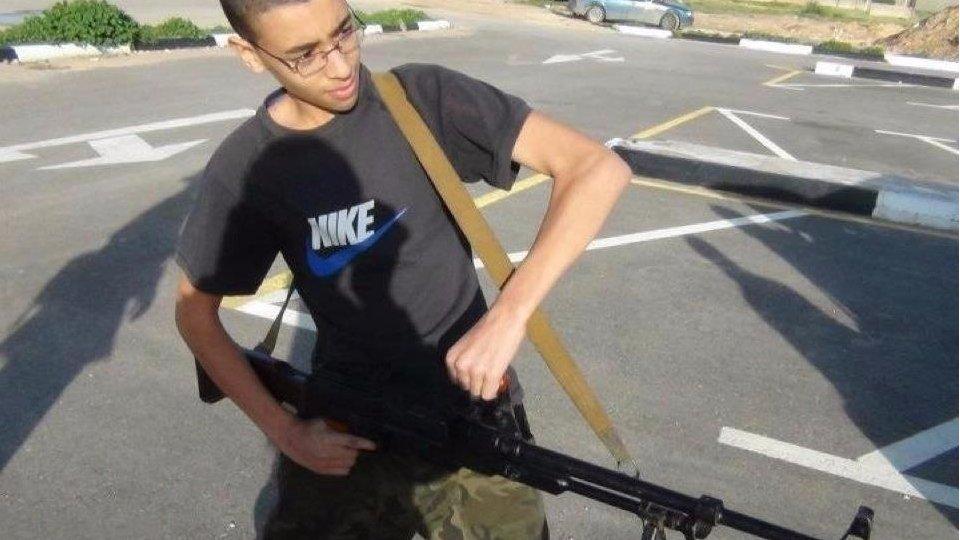Manchester Arena Inquiry: Showsec errors 'did not contribute to bombing'
- Published
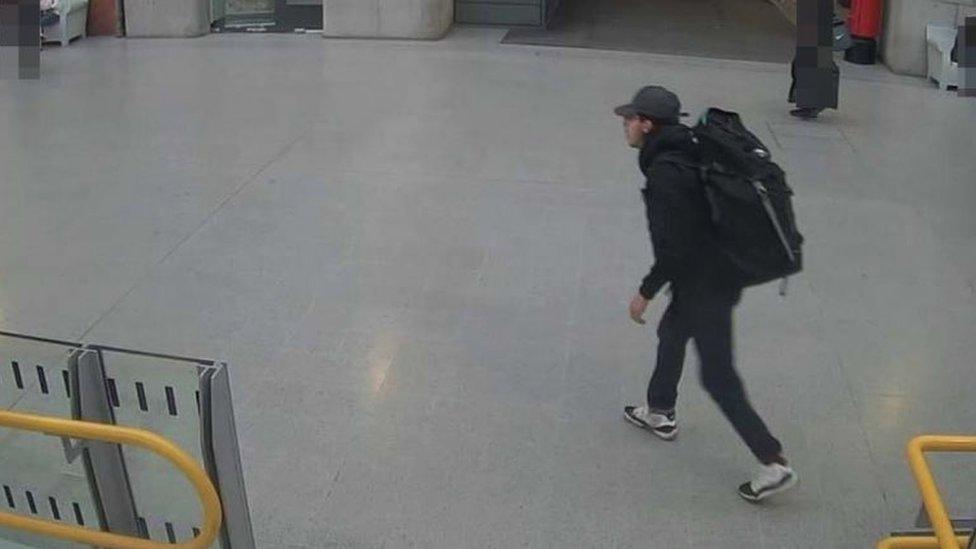
Mr Laidlaw said Salman Abedi would have detonated the bomb even with security intervention
Security errors were made at Manchester Arena before it was attacked, but they had not contributed to the bombing, an inquiry has heard.
Showsec's barrister Jonathan Laidlaw QC told a hearing the security firm had fallen short in some areas at the venue but had not been "complacent".
He said there was "little doubt" the bomb would have been detonated even with security intervention.
The inquiry has heard security mistakes contributed to the venue being unsafe.
Twenty-two people were killed and hundreds more injured when Salman Abedi detonated a home-made device in the arena's City Room foyer as fans left an Ariana Grande concert on 22 May 2017.

Twenty-two people were killed and hundreds more injured in the 2017 bombing
Mr Laidlaw said the firm had fallen short on bag checks and risk assessments at the venue, but "neither of these flawed processes caused or contributed to either the bombing or the extent of the casualties, nor were they reflective of a relaxed or complacent approach to security".
The hearing has previously been told two Showsec stewards, Mohammed Agha and Kyle Lawler, were made aware of Abedi's suspicious behaviour in the minutes before the explosion but failed to report it to a supervisor or the control room.
Mr Laidlaw said if there were failures on the part of those stewards, "this cannot be attributed to a lack of appropriate training".
He said Showsec was "not seeking to shift blame or to scapegoat".
Mr Laidlaw Abedi had been "plainly determined and entirely committed to killing himself and as many others as he could" and there was "little doubt" he would still have detonated his bomb even if a Showsec steward or police officer had spoken to him.
He added that accusations the firm was deliberately putting profit before public safety at the venue were "unfair" and "should be roundly and explicitly rejected".
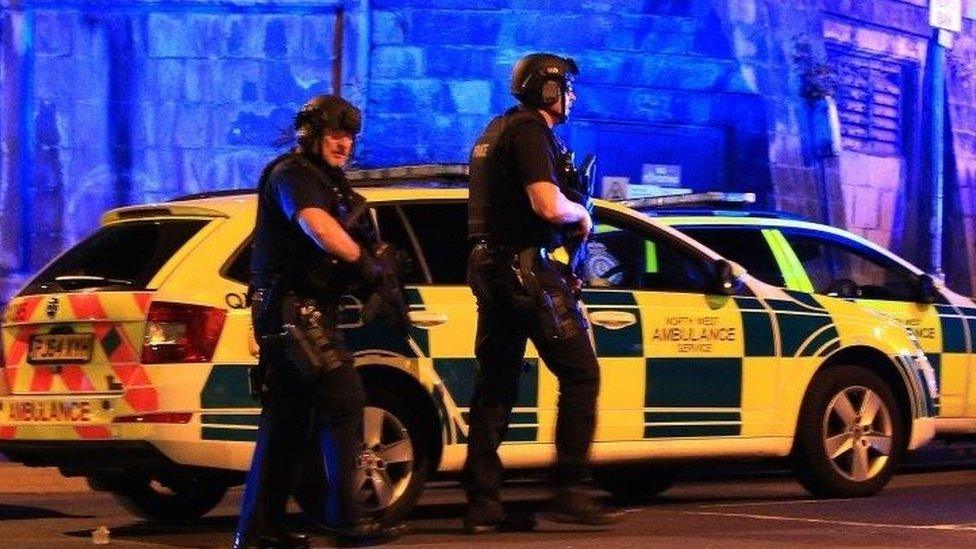
Mr Horwell said GMP were told there were "wall-to-wall" checks of the City Room
The inquiry then heard from lawyers representing Mr Lawler and Mr Agha.
Representing Mr Lawler, Saba Naqshbandi told the hearing he "did not view Abedi as a suspicious person" nor "was it obvious he was suspicious" when her client - who was 18 at the time of the attack - saw the bomber.
She also told the inquiry that if Mr Lawler had reported Abedi to the control room "it is likely he would've carried out his plan earlier than he did [and] highly unlikely that no-one would've been murdered".
"Whatever Kyle Lawler did, the appalling reality is that people were going to die," she added.
He said Mr Agha did not regard the suspicious report of Abedi to be an emergency and tried to attract the attention of a supervisor and then told Mr Lawler, who had a radio.
"He completed his duty."
Earlier in the hearing, Richard Horwell QC, representing Greater Manchester Police (GMP), accused arena operators SMG of not spending enough time or attention on security measures before the terror attack.
SMG has suggested it was misled and poorly advised by GMP on counter-terrorism measures which the force denies, but Mr Horwell said the operator "did not devote enough time and attention to ensure its protective security measures were properly and effectively applied".
Mr Horwell also said Ken Upham, its counter-terrorism advisor at the arena, was given incorrect information.
He said he would have been told there were "wall-to-wall" checks of the City Room at the end of events, when in reality that was not happening.
The government revealed to the inquiry plans to improve security at public venues which were delayed by Covid-19 will go out to public consultation by the end of February.
Families of those killed in the arena attack had accused ministers of dithering over the Protect Duty proposal - which is also known as Martyn's Law, named after victim Martyn Hett.
The inquiry continues.

Why not follow BBC North West on Facebook, external, Twitter, external and Instagram, external? You can also send story ideas to northwest.newsonline@bbc.co.uk, external
Related topics
- Published26 January 2021

- Published25 January 2021

- Published20 January 2021
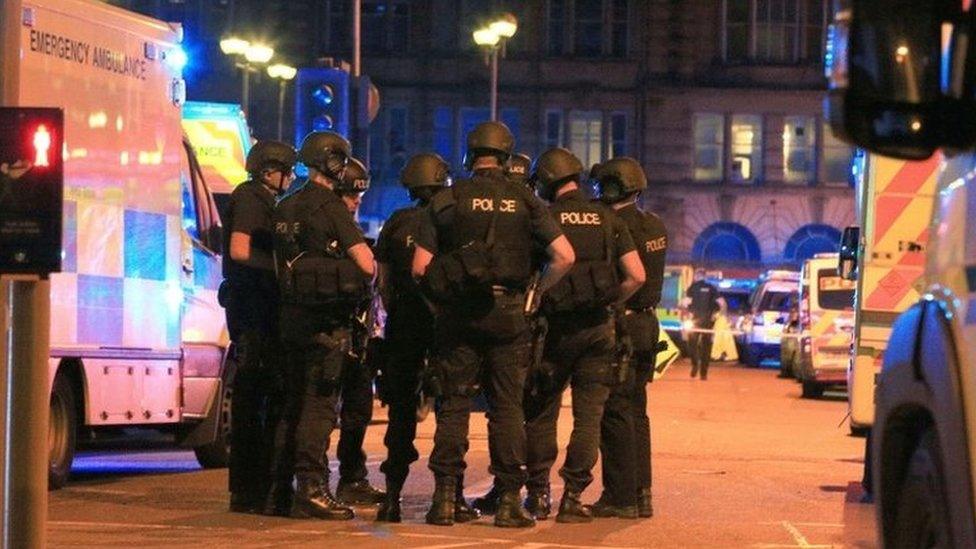
- Published19 January 2021

- Published18 January 2021
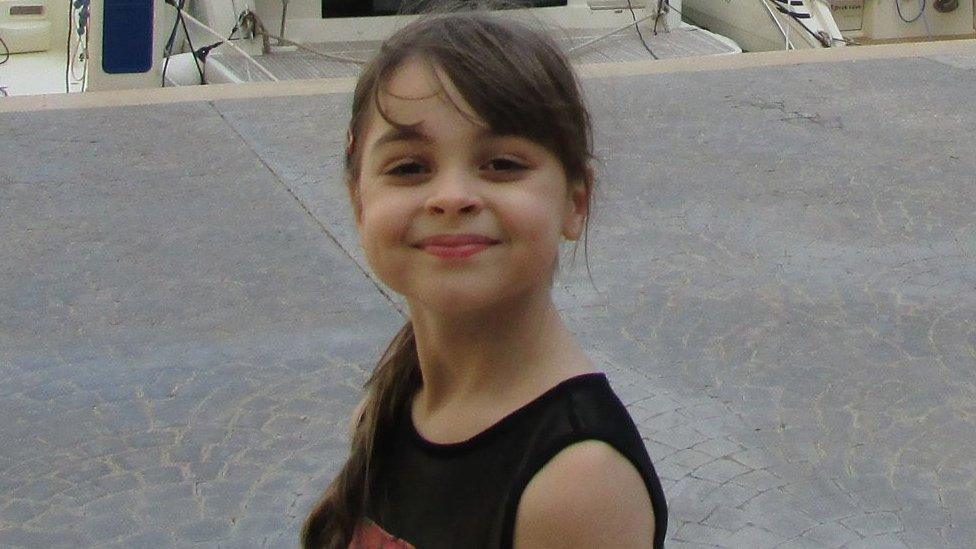
- Published3 November 2022

- Published7 September 2020
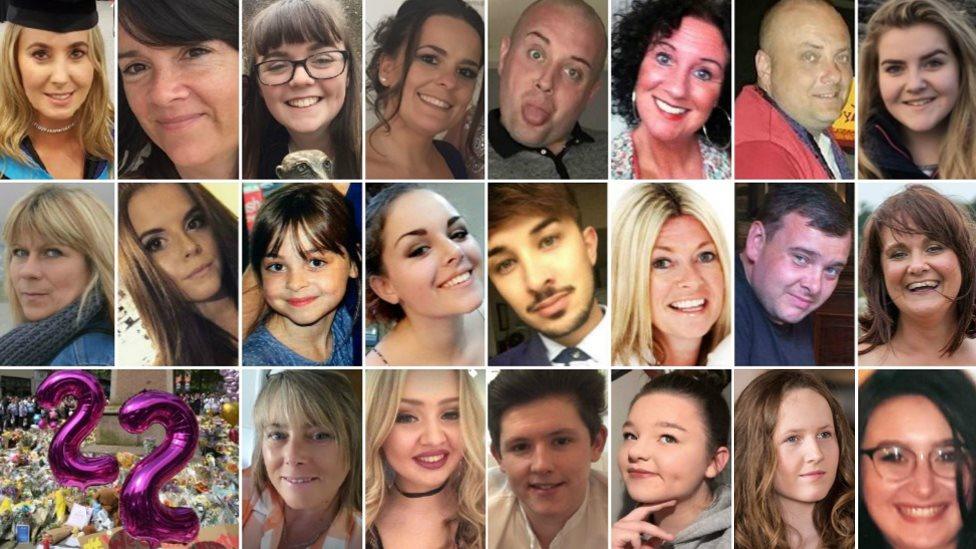
- Published17 March 2020
